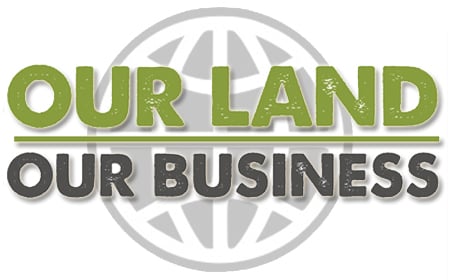Our Land Our Business Campaign

Since 2014, the Our Land Our Business campaign has been demanding the end of World Bank’s Doing Business (DB) ranking and Enabling the Business of Agriculture (EBA).
These ranking systems reward countries for reducing their labor standards, destroying their environment, and providing easy access for corporate pillaging and land grabs. They create a race-to-the-bottom between countries as they clamor for World Bank investment dollars.
Publications
USAID: Taxpayers' Dollars Finance Big Ag's Expansion in Africa For years, US international food aid has prioritized domestic commercial interests by shipping food grown, processed, and packaged exclusively in the US to countries in need. Similarly, the US Agency for International Development’s (USAID) programs for agriculture aim to create new market opportunities for US exports in developing countries and increase the control of local food...
Danida's Pro-Corporate Aid Harms Smallholder Farmers Denmark’s international development agency, Danida, claims there is a win-win intersection between development and business goals and supports private sector-led initiatives for agricultural development. This strategy supposedly allows Denmark to meet both the demand for investment and trade in developing countries and the interest of Danish companies in gaining access to new markets. However...
Peru has remained in the good grace of the World Bank. In 2015, it ranks 35th in the Bank’s Doing Business survey, with the second highest score in Latin America, indicating that the government has “created a regulatory environment conducive to business.” In 2008, Peru requested help from the Bank’s International Finance Corporation (IFC) advisory services for the design of a new reform agenda launched in 2009. As a result, the World Bank’s...
In March 2014, the multicontinental campaign Our Land Our Business was launched to demand the end of the World Bank’s Doing Business project and Benchmarking the Business of Agriculture (BBA) initiative, recently renamed Enabling the Business of Agriculture (EBA). Bringing together over 260 NGOs, farmer groups, grassroots organizations, and trade unions, Our Land Our Business condemned the World Bank business indicators, which rank countries on...
In the years following the 2001 economic crisis, the World Bank has used Uruguay as the poster child of an economy that has become stronger after following its development model. The Bank pushed for financial sector changes, including developing capital markets (the buying and selling of long term debt and other mechanisms) to improve the investment climate in the country. At the 88th position out of 189 countries, Uruguay enjoys a “good” score...
Pages
Blog
Thursday, April 12, 2018 Flora Sonkin Buzzwords like 'business-enabling environment,' which underlie NAFSN discourse and practice, merely support the expansion of large-scale and export-oriented agribusinesses, at the cost of local farmers and biodiversity.
Wednesday, February 21, 2018 Paola Langer On January 12, 2018, World Bank Chief Economist Paul Romer revealed that the Bank’s Doing Business Ranking may have been deliberately skewed and politically manipulated, disfavoring Chile’s ranking under its outgoing socialist president, Michelle Bachelet. Following these revelations, he resigned on January 24.
Monday, March 20, 2017 Alice Martin-Prével This March 20, 2017, the World Bank’s 18th Annual Land and Poverty Conference begins, featuring a session where Bank specialists will deliver their assessment on the “quality” of land regulations globally. In particular, the Bank’s staff will comment on the implementation and findings of the Doing Business (DB) and the Enabling the Business of Agriculture (EBA), two projects that rank countries’ regulatory...
Tuesday, January 31, 2017 Alice Martin-Prével Around the world, farmers’ rights to seeds are imperilled by industry-pushed reforms to curtail the freedom to save, reuse, exchange, and sell seeds. This is because, for the industrial seed market to grow, more farmers must rely on seeds bought from corporations, rather than seeds saved from previous harvests.
Thursday, November 3, 2016 Alice Martin-Prével, Frederic Mousseau “Equal Opportunity for All” subtitles the annual Doing Business report released last month by the World Bank. The choice is rather cynical for an instrument that has become a key driver of the neoliberal reforms promoted by the Bank around the world.
Pages
Press Releases and Public Statements
Media
Amandla African News Weekly
Pages
Multimedia
Our Land Our Business Video
Right now, millions of people are being thrown off their land because large corporations are being given special rights. The World Bank is driving this trend with its Doing Business rankings.
Learn more


